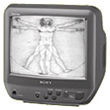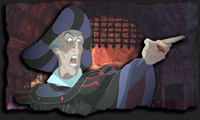Why study media? Contemporary educators and critics have identified a number of important reasons. Canada's Association for Media Literacy suggests that there are six reasons why contemporary students need to pursue media literacy-a concept Canadians refer to as mediacy.
- media dominate our political and cultural lives
- almost all information beyond direct experience is "mediated"
- media provide powerful models for values and behavior
- media influence us without our being aware
- media literacy can increase our enjoyment of media
- media literacy can make a passive relationship active
The critical tradition

It is important to note that in spite of the contemporary feel of the phrase media studies, promoting a critical awareness of both medium and message is hardly a new concept. At The Catholic University of America, our Media Studies department insists not only that students explore and discuss contemporary ideas about the media, but that students read and write about some of the West's earliest media critics.

Plato tells us in the Phaedrus, for example, that Thoth (the Egyptian counterpart to Mercury and Hermes), excited by his invention of "writing," presented this novelty on a heavy piece of parchment to the Pharaoh Thamus, and praised his new technique loudly, claiming that it would allow mankind to remember what they were otherwise doomed to forget: family histories, herd counts, real estate deals. But the Pharaoh was not so satisfied. "My skillful Thoth," he said, "memory is a great gift that ought to be kept alive by training it continuously. With your invention people will not be obliged any longer to train memory. They will remember things not because of an internal effort, but by mere virtue of an external device. They will become lazy, and slothful."

Among the myriad changes Disney made to Hugo's massive Hunchback of Notre Dame was the deletion of a very poignant moment of media criticism. Hugo's sprawling romance takes place less than 15 years after the invention of the printing press. "Ceci tuera cela," observes a despondent Judge Frollo, as he points first to a newly-printed book, and then to the towers of his church. "This will kill that:" The printed word, he fears, will change mankind radically, and institutions like the Church may suffer.
